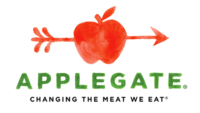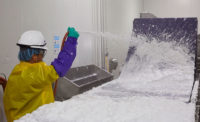Poultry industry experts share key safety insights
Experts offer their insights into critical safety best practices.

Courtesy of the US Poultry & Egg Association
Industry safety professionals recently gathered in Destin, Fla., for the National Safety Conference for the Poultry Industry. The conference, sponsored by the Georgia Tech Research Institute/ATRP and the U.S. Poultry & Egg Association, brought together leaders who provided insights into critical safety best practices.
Amber Flatt, a nurse supervisor at Simmons Foods, presented on the crucial role of supervisor training in treatment protocols and mental health awareness. She highlighted the importance of supervisors understanding and implementing injury reporting procedures and stressed that supervisors should actively demonstrate care, encourage timely reporting and follow up on team members' conditions to prevent and manage injuries effectively. Flatt also emphasized the need to support stress management initiatives, such as stress management classes and Zen rooms introduced in facilities to promote mental well-being, as Simmons Foods has done in their facilities.
As part of his presentation on Worker’s Comp Claims Management, Mike Redmond, occupational health nurse manager at Wayne-Sanderson Farms, underscored the importance of proactive and consistent claims handling. He mentioned that unmanaged claims could lead to unnecessary costs and delays and stressed the need for a compassionate, employee-centric approach. Redmond outlined the claims process and noted that effective case management and timely review of cases can improve recovery times, reduce lost production days and lower workers’ compensation costs.
Forrest Adams, industrial hygiene manager at Tyson Foods, spoke on best practices in industrial hygiene, focusing on monitoring and managing various hazards. He highlighted the importance of contextual observations alongside monitoring for dust, mists, fumes, gases and physical hazards like noise, heat and cold. Adams emphasized controlling dust is key and recommended using dust masks and vacuum sampling.
During her presentation on In-House Sanitation Safety Best Practices, Michelle Johnson, safety and health director for Pilgrim’s, provided tips that include a comprehensive five-day orientation for new team members, which comprises classroom and hands-on training on chemical safety, equipment-specific procedures and facility tours. Johnson said, “At Pilgrim’s, safety is a condition. A machine, department, process or plant does not operate without safety requirements being met.” She said, “Priorities can change, but the condition in which we operate does not.”
Rob Lowe, a safety consultant from Fisher Phillips LLP, presented on contract sanitation, outlining both its advantages and disadvantages. He emphasized that contractor policies should match or exceed company standards. Lowe also highlighted the importance of personal protective equipment and discussed multiemployer workplace inspections, stressing the need for active involvement in OSHA inspections, collaborative planning and clear communication to avoid placing blame on the host employer.
Source: U.S. Poultry & Egg Association
Looking for a reprint of this article?
From high-res PDFs to custom plaques, order your copy today!




